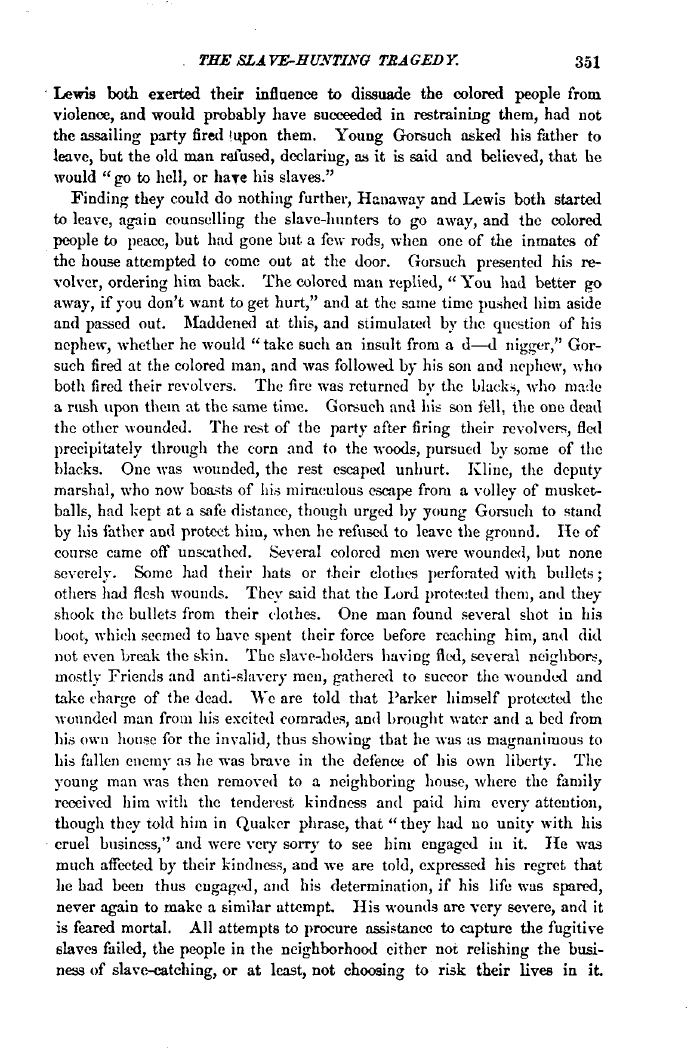 |
||||
 |
||||
| THE SLAVE-HUNTING TRAGEDY. 351 Lewis both exerted their influence to dissuade the colored people from violence, and would probably have succeeded in restraining them, had not the assailing party fired !npon them. Young Gorsuch asked his father to leave, but the old man. refused, declaring, aa it is said and believed, that he would " go to hell, or hare his slaves." Finding they could do nothing further, Hanaway and Lewis both started to leave, again counselling the slave-hunters to go away, and the colored people to peace, but had gone but a fc\v rods, when one of the inmates of the house attempted to come out at the door. Gorsuch presented his revolver, ordering him back. The colored man replied, " You had better pro away, if you don't want to get hurt," and at the same time pushed him aside and passed out. Maddened at this, and stimulated by the question of his nephew, whether he would "take such an insult from a dóJ nigger," Gorsuch fired at the colored man, and was followed by his son and nephew, who botli fired their revolvers. The fire was returned by the blacks, who matle a rush upon them at the same time. Gorsuch and his son fell, the one dcail the other \\ounjcd. The rest of the party after firing their revolvers, fled precipitately through the corn and to the woods, pursued by some of the blacks. One was wounded, the rest escaped unhurt. Klinc, the deputy marshal, who now boasts of his miraculous escape from a volley of musket-balls, had kept at a safe distance, though urged by young Gorsuch to stand by liis father ami protect him, when lie refused to leave the ground. He of course came off unscathed. Several colored men were wounded, but none severely. Some had their hats or their clothes perforated with bullets; others had flesh wounds. They said that the Lord protected them, and they shook tho bullets from their clothes. One man found several shot iu his boot, which scorned to have spent (heir force before reaching him, anil did not even break the skin. The slave-holders having flwl, several neighbors, mostly Friends and anti-slavery men, gathered to succor the wounded and take charge of the dead. ^V'c are told that Parker himself protected the wounded man from his excited comrades, and brought water and a bed from bis own house for the invalid, thus showing that he was as magnanimous to his fallen enemy as lie was brave in the dei'ence of his own liberty. The young man was then removed to a neighboring house, where the family received him with the tendercst kindness and paid him every attention, though they told him in Quaker phrase, that " they had uo unity with his cruel business," and were very sorry to see him engaged in it. He was much affected by their kindness, and we are told, expressed his regret that he bad becu thus cngagwl, and his determination, if his life was spared, never again to make a similar attempt. His wounds are very severe, and it is feared mortal. All attempts to procure assistance to capture the fugitive slaves failed, the people in the neighborhood cither not relishing the business of slave-catching, or at least, not choosing to risk their lives in it |